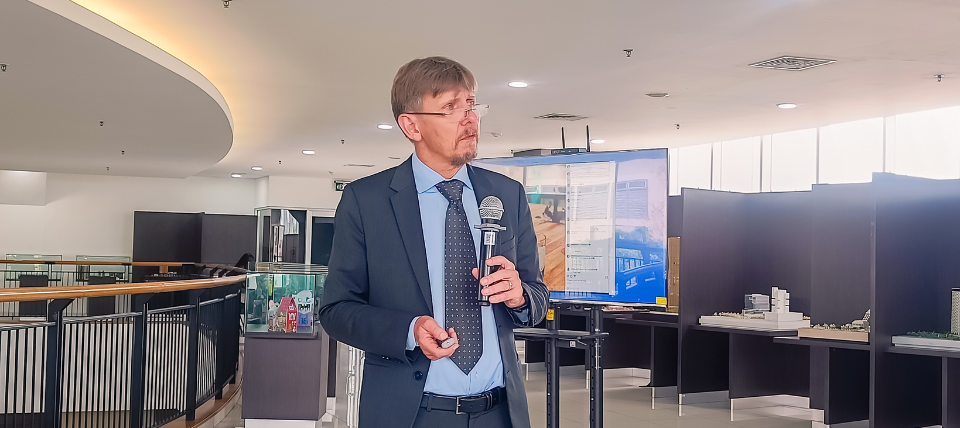Jakarta, 26 September— Digitalization has advanced rapidly in the last decade, particularly in Asia, with a smartphone penetration rate of 90% as a clear indicator. This technological advancement has transformed consumer behavior in accessing digital media and expanding engagement and connections.
(Photo Editor: Mufti Warits)
For a more in-depth exploration of this topic, BINUS Business School invited Prof. Rian Beise-Zee, Vice-President of International Cooperation & Research at Ritsumeikan Asia-Pacific University, Japan, to share his expertise in product development and marketing strategies during a two-day international guest lecture series on 24-25 September at our Anggrek and Alam Sutera Campuses.
Consumer behavior changes in the digitalization era have compelled companies to adapt their strategies in both product development and marketing approaches. With the rapid change of information in digital media, how can we foster sustainable business practices?
(Photo Editor: Mufti Warits)
As digital media advances, individuals can now freely connect with social media users on platforms like Instagram and TikTok, engaging through shared content, product reviews, and product promotion.
Addressing this trend, Prof. Beise-Zee remarked, “The rise in individual interaction on social media offers companies crucial information about consumer preferences and behaviors, including their interest in sustainability practices. This information aids them in modifying their product development strategies to align more closely with consumer needs, referred as agile product development, and creating more interactive marketing approaches using influencers-driven campaigns.”
One example of agile product development is Spotify, the music streaming app that is regularly updated to gather user feedback and respond to market trends. This approach allows Spotify to lower production costs by building a long-term system and financial investment.
(Photo Editor: Mufti Warits)
“One of the largest efficiencies in corporate spending is achieved through cutting back on TV advertising costs by engaging with influencers and using social media for product and service promotions. However, companies do not cease their TV ads, as they believe it is still essential for reinforcing brand presence to consumers,” added Prof. Beise-Zee.
Tailoring products to consumer preferences and leveraging interactive promotions through influencers has enhanced transparency and deeper consumer trust, which not only helps businesses in cutting down production and marketing costs but also boosts product innovation and the creation of engaging digital content, driven by high market competition. By applying these strategies, companies have strengthened their customer-driven sustainable business practices.
(Photo Editor: Mufti Warits)
Finally, through guest lectures that are integral to our academic partnerships with global partners, including sessions with Prof. Beise-Zee, BINUS Business School equips its students with global exposure in their academic journey. This approach empowers our students to grasp current industry trends and enhance their critical thinking skills, that are essential for shaping the future of business and society.
(Words by Mita Adhisti/Editor: Hamzah Ramadhan)
... ... ...